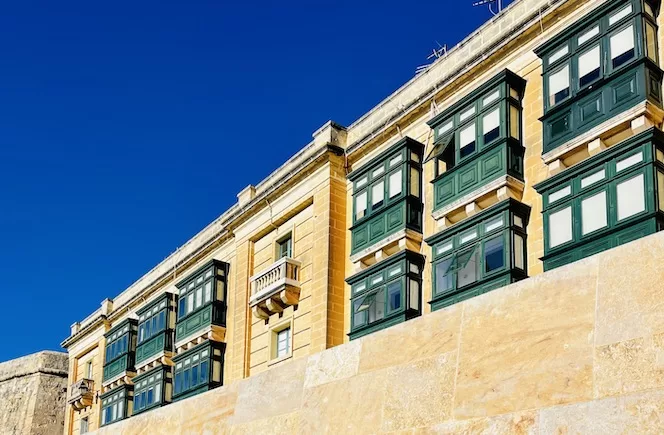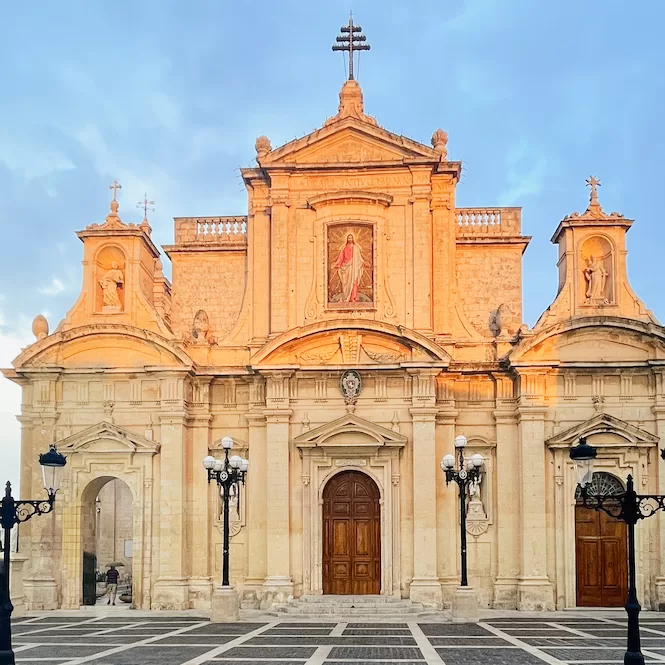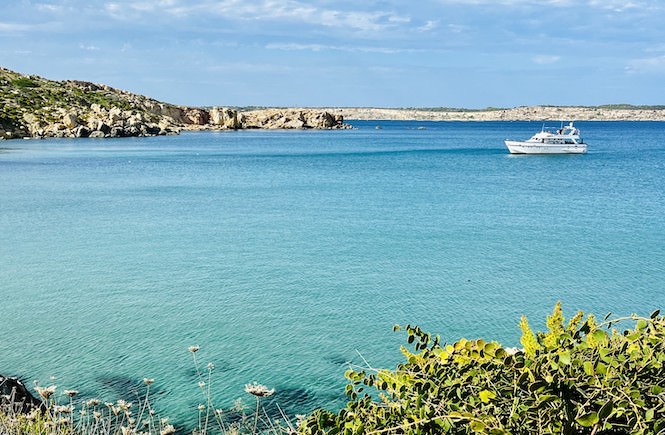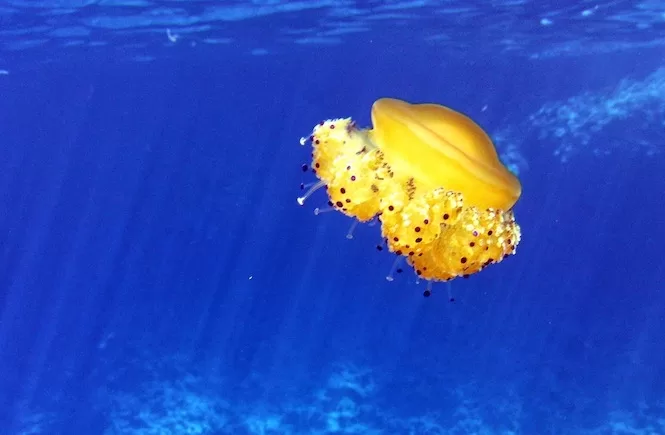Just a quick heads up – some of the links I share on this site are affiliate links. That means if you click on one and make a purchase, I may earn a small commission at no extra cost to you. Your support through these links helps me create valuable content.
Facts about Malta show that it’s more than just a sun-soaked vacation spot. It’s a place where ancient history rubs elbows with tech, where the streets are photo-worthy, and where the sea is a diver’s paradise. From its unique language to its love of cars, Malta is full of surprises. Discover Malta you didn’t know existed.
Geography Facts About Malta
- Malta’s Geographical Location
Malta is an archipelago of islands located in the Mediterranean Sea. It’s 81 kilometres south of Sicily, about 300 kilometres from North Africa. It’s a true crossroads of cultures, blending European and African influences.
- Malta is Made Up of Five Islands
Malta has three islands: the main island, Gozo and Comino, and two uninhabited islets: Comminotto and Filfla.
- Malta’s Landscape
Malta has no rivers, lakes, or mountains. Instead, the country offers gentle hills and terraced fields.
- Dingli Cliffs: Malta’s Highest Point
Located 253 meters above sea level, Dingli Cliffs is Malta’s highest point. Sunsets are beautiful here.
- Drinking Water: Scarcity and Innovation
Due to its limited underground water supply, Malta has desalinated seawater since 1982. It’s a high-tech solution to an age-old problem.
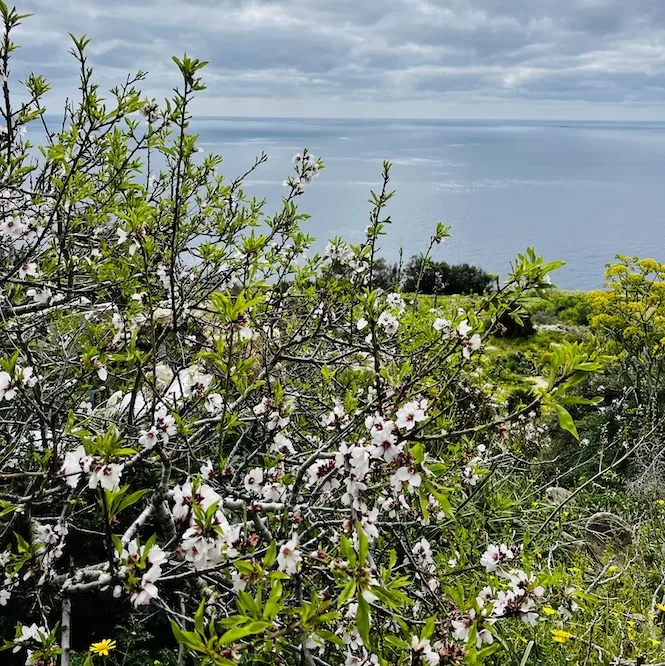
Facts About Malta: Demographics and Linguistic Diversity
- Malta: A Small Island with a Large Population
Over 520,000 people live in this tiny country, making it one of the most densely populated nations in the world.
- Malta is a Haven for Expats
Malta isn’t just for the Maltese. A large group of expats from all over the world call this island home. They bring new flavours, ideas, and traditions, making Malta a true melting pot of cultures.
- Malta’s Linguistic Blend
Malta has two official languages: Maltese and English. The Maltese language is unique, blending Semitic roots (from Arabic influences) and Romance languages such as Italian and French.
- Maltese: A Unique Semitic Language in Latin Script
Maltese is a standout in the language world—it’s the only Semitic language written in Latin letters. Unlike Arabic, which uses Arabic script, or Hebrew, which uses Hebrew script, Maltese is written with the same alphabet as English. A word like “tajjeb” (meaning “good”) showcases its Semitic roots while being spelt in a way familiar to Western eyes.
Symbols and Heritage
- The Meaning of the Maltese Cross
The eight points of the Maltese Cross symbolise the eight obligations or aspirations of the knights. These obligations or aspirations include faith, forgiveness, and bravery. These points were thought to represent the eight “langues” (or languages) of the Knights Hospitaller, which were essentially administrative divisions of the Order.
- Malta’s Flag: A Badge of Courage and Honor
Malta’s flag consists of two vertical bands of white and red, with the George Cross in the upper left corner. The George Cross was awarded to Malta by King George VI of the United Kingdom in 1942, during World War II. This was a recognition of the island’s heroism and devotion.
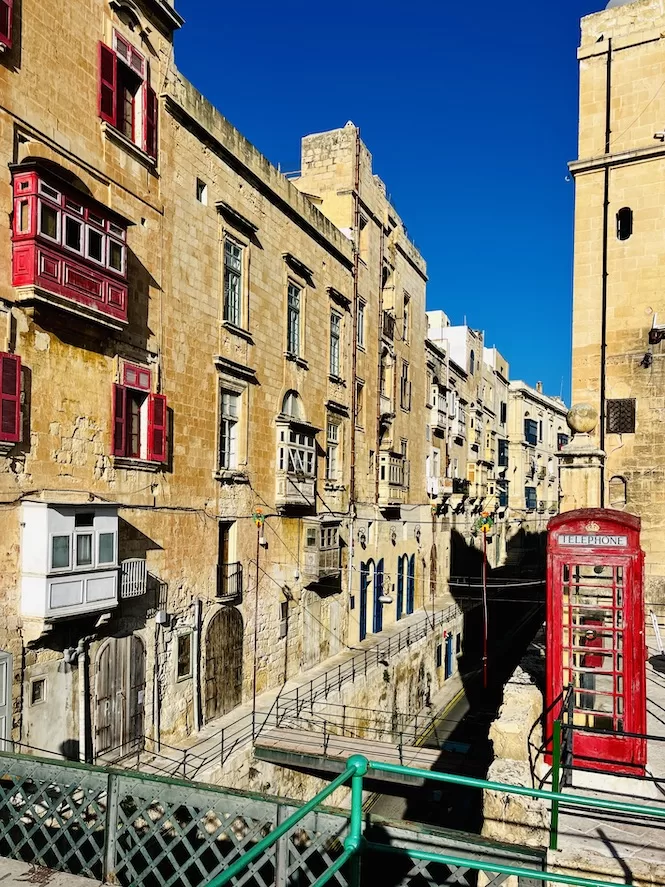
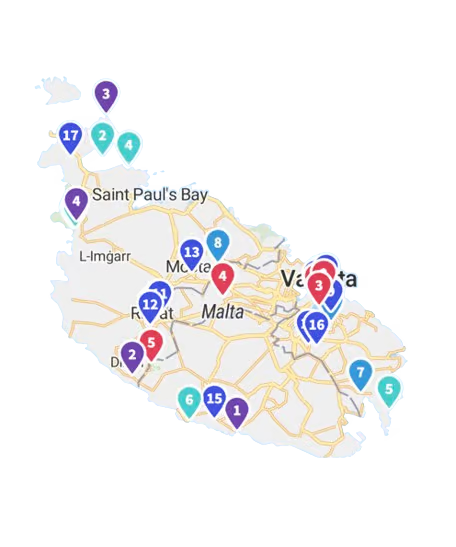
Get a FREE Attractions Map
Planning a trip to Malta, Gozo, or Comino? Get this free interactive map filled with insider tips, Google Maps links, and more.
History Facts About Malta
- Malta’s Long and Rich History
The islands have been inhabited since around 5900 BC, with the Greeks, Romans, Arabs, Normans, and French all leaving their mark on the country. Check out my blog on the top historical sites.
- Malta’s Temples Outdate the Pyramids and Stonehenge
Malta is home to astonishing limestone temples. Built between 3600 BC and 2500 BC, they stood tall before Egypt’s pyramids and England’s Stonehenge.
- A Civilization Lost in Time
The civilisation that built the Megalithic Temples thrived for 1,500 years before disappearing mysteriously, possibly due to drought and climate conditions.
- Malta was once part of the Roman Empire
In 218 BC, the Romans took over Malta and made it a major power centre. The island thrived, complete with grand walls, temples, and stunning mosaics. Latin became the talk of the town, and Malta stayed Roman until the 6th century.
- Arab Influence
The Arab invasion in 870 AD left a lasting impact on Maltese culture, language, agriculture, and even cooking. Many place names in Malta originate from this period.
- The Knights’ Legacy in Malta
Malta was ruled by the Knights of St. John from 1530 to 1798. During this time, they built many palaces and fortresses and held off the Ottoman Empire. Their crowning achievement is Valletta.
- Malta’s British Legacy
Malta was under British rule for 150 years, with independence coming in 1964. British influence is still evident today, from the red telephone boxes to the fact that Maltese drive on the left-hand side of the road.
- Malta during World War II
Malta played a significant role in World War II. Due to its strategic location, Malta was the most bombed country during the war. Despite the heavy bombardment, Malta’s brave resistance earned it the George Cross.
If you want to understand Malta’s history well, take a walking tour in Valletta. Look at my guide for the best Valletta walking tours.
Facts About Malta: Unique Traditions
- Għana: The Maltese Folk
Għana was born in the fields and on fishing boats. This spontaneous art form blends Sicilian ballads with Spanish and Moorish influences. It’s not just music; it’s raw, and emotional dialogue that has been the voice of Malta’s working class for centuries.
- Malta’s Deep Religious Tradition
Malta is predominantly Roman Catholic. Over 90% of the island’s people follow this faith, making it a cornerstone of Maltese identity.
- There is a Church for Every Day
Malta has 365 churches—one for each day of the year. This is not just about numbers. It’s a vivid demonstration of how deeply religion shapes Maltese society.
- Festas: Malta’s Religious Celebrations
In Malta, faith isn’t quiet—it’s a party! The Maltese adore their “festas,” vibrant celebrations honouring each town’s patron saint. The streets are decorated, fireworks fill the sky, and local flavours fill the air.
- The Luzzu: Malta’s Eye-Catching Boat
The “Luzzu” is Malta’s fishing boat. Its bright colours tell you where it’s from, like red for St. Paul’s Bay. Plus, it has the Eye of Osiris painted on it—so it’s like a good luck charm at sea.
- Malta’s Carnival: A Must-See Party
Every February, Malta becomes one big party for Carnival. Floats, costumes, and dancing fill the streets, especially in Valletta. Want something different? Head to Nadur in Gozo where things get weird and fun.
- Malta’s Football Split: Italy vs. England
Maltese football fans tend to support Italian or English football clubs. This division can be traced back to Malta’s historical ties: Italy’s proximity and cultural influence on the one hand, and British colonial rule on the other. When these teams play, everyone in Malta watches.
- Malta’s Unique Vendor Vans
In Malta, vans sell everything from veggies, bread and gas cylinders to a traditional Maltese dip called bigilla, doughnuts, and ice cream. They don’t have a set time, but you’ll know they’re nearby by their loud honking. It’s how locals know it’s time to shop.
- Eurovision: Malta’s Unmissable Event
Eurovision isn’t just a show in Malta; it’s a cultural must-see. From kids to grandparents, everyone knows the songs. Skipping it? Not an option. It brings the whole country together.
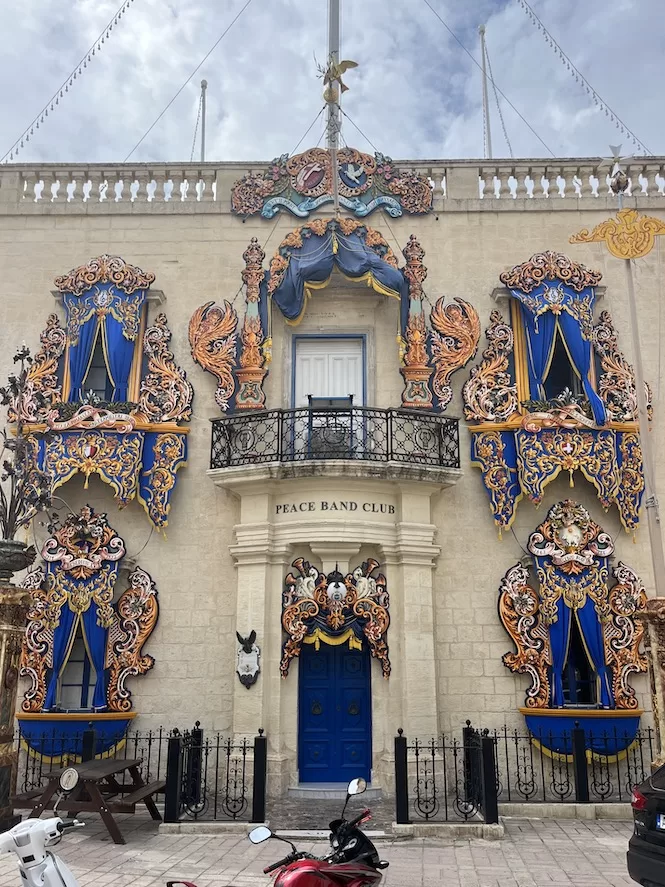
Driving and Cars
- The Adventure of Driving in Malta
Driving in Malta can be a unique experience. The country follows the British system of driving on the left side of the road. With narrow streets, heavy traffic, and unique driving habits, navigating Maltese roads can be quite an adventure. Check out this post for more driving tips.
- Malta’s Car Obsession
In tiny Malta, cars rule the road with over 400,000 for a population of 520,000. Turning 18 often means getting a car, and not having one is a big deal. Some even say it makes the Maltese “lazy” about other ways to get around.
Need advice on renting a car in Malta? Here’s my guide with insider tips on everything you need to know.
Facts About Malta: Historical and Cultural Landmarks
- Valletta: Small but Not Insignificant
Valletta may be the EU’s smallest capital, but it’s a UNESCO World Heritage site bursting with history and culture. From ancient fortifications to modern art, there is plenty to see in this tiny capital.
- Valletta’s Hidden Subterranean World
Under Valletta’s streets lies a network of tunnels. These were initially created during the Great Siege of Malta in 1565 for defensive purposes and later expanded by the British.
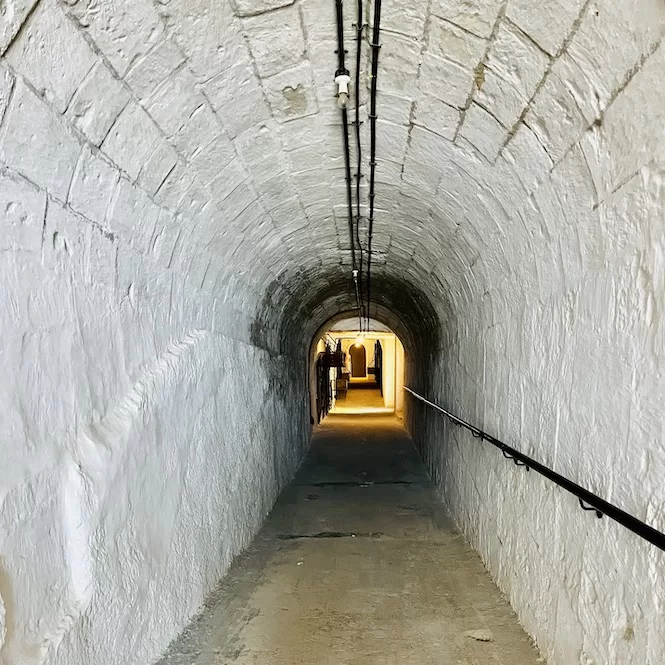
- UNESCO World Heritage Sites in Malta
Malta boasts three UNESCO World Heritage Sites. The fortified city of Valletta, designed in a grid pattern by the Knights of St. John in the 16th century, stands as a masterpiece of late Renaissance architecture. The Megalithic Temples spread across Malta and Gozo, are among the world’s oldest freestanding structures, dating back to 3600 BC. Lastly, the Hal Saflieni Hypogeum is an exceptional underground prehistoric burial site.
Food and Drinks
- Rabbit Stew, Malta’s National dish
Known as “Stuffat tal-Fenek,” Malta’s rabbit stew was introduced by the Phoenicians over 3000 years ago. This dish is a traditional favourite, simmered in a rich wine and tomato sauce.
- Malta: The Island of Honey
Did you know Malta’s name is sweet? The name “Malta” likely comes from the Greek word “meli,” meaning honey. This isn’t just a cute name; it’s a nod to the island’s unique bees that make some of the world’s finest honey.
- Kinnie: Malta’s Signature Soft Drink
Malta produces its own popular soft drink called Kinnie. Kinnie is a bittersweet, carbonated soft drink that originated in Malta in 1952. Over the years, Kinnie has become a cultural icon in Malta, enjoyed both as a standalone beverage and as a mixer in cocktails.
- Pastizzi: Malta’s Go-To Snack
One bite and you’re hooked—that’s Pastizzi, Malta’s favourite street food. These diamond-shaped pastries are culinary staples, traditionally filled with ricotta or peas. Available almost anywhere—from hole-in-the-wall shops to the Malta International Airport—they’re an affordable and delicious way to satisfy your hunger at any time of the day.
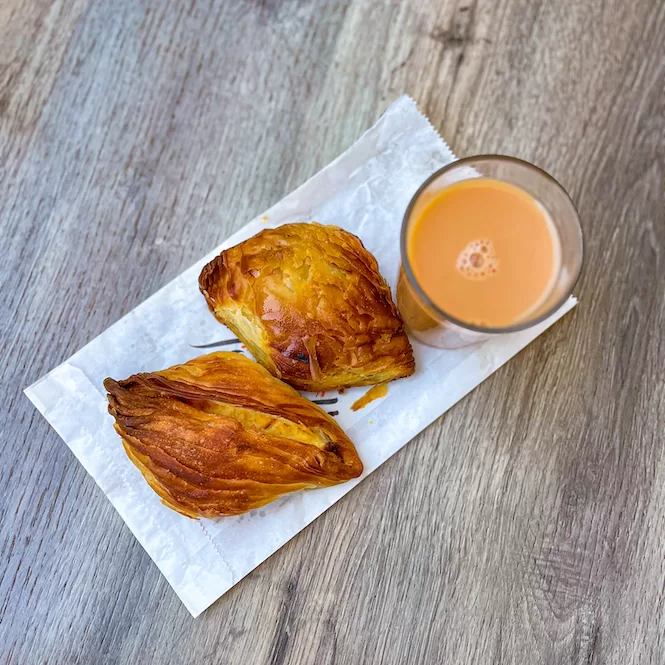
Malta in Popular Culture
- Malta: Hollywood Movies Backdrop
With its stunning landscapes and ancient sites, Malta is a filmmaker’s dream. Even the epic “Game of Thrones” chose Malta’s Gozo Island for its first season.
- The Maltese Falcon: Hollywood’s Tribute to Malta
The Maltese Falcon is a classic novel and a film that’s more than just a detective story. It starts with a mystery about a jewel-covered bird from Malta and takes us on a wild ride. This film is even in the National Film Registry for being highly important.
Malta’s Natural Wonders
- The Blue Lagoon: Malta’s Turquoise Jewel
If paradise had an address, it would be the Blue Lagoon on Comino Island. Imagine diving into water so clear and blue, it looks like a precious gem. Here are my top recommended Blue Lagoon tours.
- The Fallen Azure Window
Once a breathtaking limestone arch on Gozo Island, the Azure Window symbolised Malta’s natural beauty. Though it collapsed in 2017, its memory still lives on. It’s a lost wonder that lives on in Malta’s history and in countless photographs.
- Malta has Many Endemic Plants and Animals
Don’t let Malta’s small size fool you. It’s home to 78 endemic plants and animals. Scientists think there are even more waiting to be discovered.
- Dive into Malta’s Underwater World
Scuba diving in Malta is big. There are over 100 dive sites, from sunken ships to hidden caves. Plus, you can dive all year long.
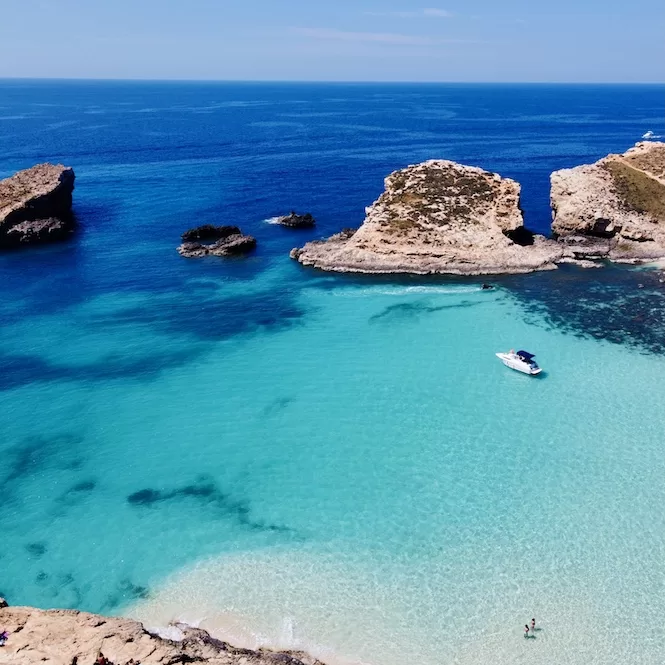
Are you planning to visit Blue Lagoon in Comino? Check out my guide to the best Blue Lagoon boat tours.
Modern Malta
- Malta’s Currency
Malta uses the Euro as its official currency. It goodbyed the Maltese Lira in 2008 when it joined the Eurozone.
- Malta Has a Free and Highly-Rated Healthcare System
Malta offers free healthcare to its residents, funded by the national insurance system. The country’s healthcare system is highly rated, with private healthcare also available.
- Malta’s Education: A Blend of Tradition and Choice
Education in Malta is based on the British model and is compulsory from age 5 to 16. The country offers a mix of public, private, and church schools, and the University of Malta is the highest educational institution on the island.
- Malta: The Digital Island
Malta aims to be a big player in digital tech and finance. With a strong economy and a great spot in the Mediterranean, it’s a magnet for investors from around the world.
- Malta: The Digital Nomad’s Paradise
Malta is quickly becoming the go-to spot for digital nomads. With its unbeatable mix of beaches, fast wifi, and a welcoming international community, it’s easy to see why. Add in 300 days of sunshine, and you’ve got a remote worker’s dream come true.
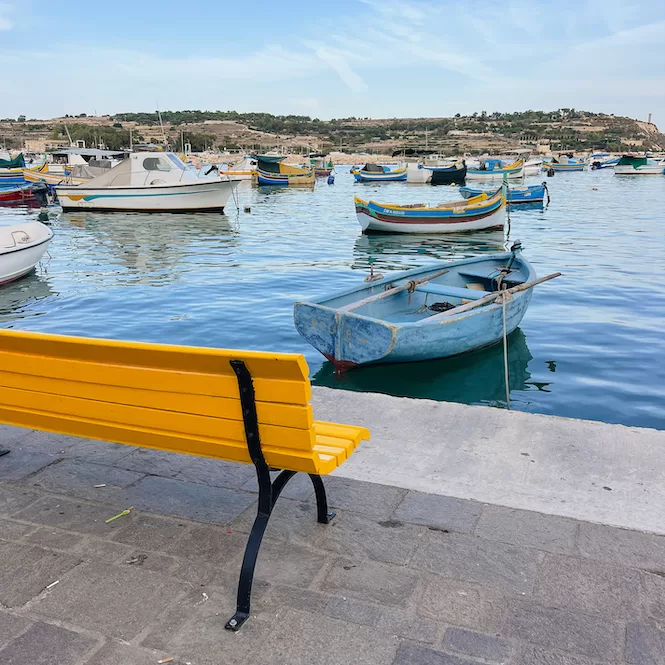
Wrapping up these fascinating facts about Malta, it’s clear that this island nation is a melting pot of culture, history and traditions.
However, the journey doesn’t end here. My 10 must-do experiences in Malta will help you plan the perfect adventure.
Want to know what to pack for Malta? Do you want to know how to make the most of your time with a 7-day itinerary or a 4-day itinerary?
Maybe you’re thinking about solo or budget travel. It’s all covered, just click on the links. Check out our posts on commonly asked questions, how to get around, and car rental advice to make your Maltese adventure truly unforgettable.
Have questions about your Malta trip? Join my FREE private Facebook group, Malta Travel Tips, where you can find helpful resources and connect with fellow travellers!

